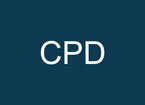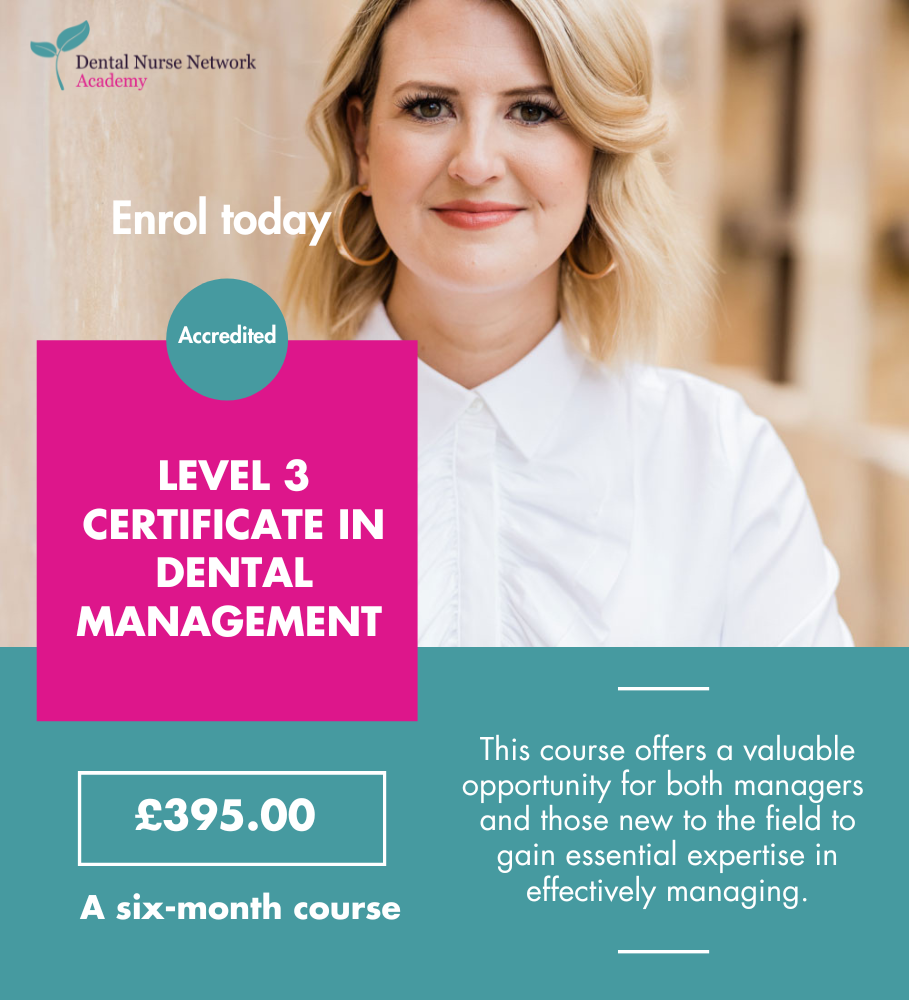 Back in March of 2015, the GDC held a meeting looking at the Enhanced Continuing Professional Development Scheme. The focus was on changes to current legislation surrounding CPD. The GDC felt that the current guidelines were not efficient enough to avoid cases of poor performance in dentistry, and that a review of the CPD system would not only benefit those working in the industry but also raise public confidence in the profession.
Back in March of 2015, the GDC held a meeting looking at the Enhanced Continuing Professional Development Scheme. The focus was on changes to current legislation surrounding CPD. The GDC felt that the current guidelines were not efficient enough to avoid cases of poor performance in dentistry, and that a review of the CPD system would not only benefit those working in the industry but also raise public confidence in the profession.
As we are all aware, the current situation for dental nurses is that over the 5-year cycle we are expected to undertake 50 hours of verifiable CPD (including all the ‘core’ topics – for example: Medical Emergencies, Infection Control and Radiation Protection). These verifiable hours must be undertaken with a certified provider. This will remain the same with the new scheme.
In addition to the verifiable CPD, we are expected to undertake 100 hours of non-verifiable CPD by the end of each cycle. These can be in the form of personal study, online videos/documents or workplace-based learning (such as ‘lunch and learn’ sessions). We are expected to log our CPD hours onto the GDC website and update our record yearly. Employers should ensure that we have dates, certificates and all relevant information recorded on staff files.
The increase in online providers in recent years has meant that CPD can now be far more easily obtained. A wide range of verifiable courses are available for professionals to access at their convenience. But it seems that this process is not being carried out by everyone, and it has been decided that changes need to be made to create a more effective system.
In light of this, the GDC has stated that: “It is anticipated that an enhanced CPD approach will pave the way towards a potential full scheme of continuing assurance of fitness to practise in dentistry” (Item 6, GDC Enhanced Continuing Professional Development Scheme, March 18 2015). The Enhanced Proposals document highlights what the GDC felt were key factors that needed to be improved in the current system. Among them was the potential for dental professionals to go for long periods of time without undertaking any CPD. This is due to the fact that the cycle is 5 years long and we are not expected to submit CPD logs until the end of that cycle. This potentially allows for DCPs to undertake all required CPD in a short space of time just before their cycle ends.
Furthermore, where registrants do not complete the required number of hours by the end of the 5 years, there is not an effective protocol in place to remove the non-compliant person. The GDC stated that there are ‘lengthy’ periods of time that DCPs can remain working even if they have failed to fulfill their learning obligations.
Another factor that was discussed was the question of ‘non-verifiable’ CPD, as it relies solely on the individual dental care practitioner to honestly record the hours they have completed. Whilst it would be ideal to assume that no one would falsify hours carried out, it can be easy for someone to create a figure and submit it just to remain compliant. In addition, the GDC has perhaps not been clear enough on what constitutes verifiable and non-verifiable CPD, and there may not be firm enough guidelines for the CPD providers themselves to follow.
The GDC states: “This is because it is not possible to independently confirm that the CPD was undertaken, there may not be quality control and no proof the activity met the definition of CPD. Our 2012 policy consultation also indicated that 58.9% of respondents agreed with only admitting verifiable CPD in the scheme” (Item 6, GDC Enhanced Continuing Professional Development Scheme, March 18 2015).
The new Enhanced Scheme that the GDC intends to bring about by 2017 will be focusing on the following key factors:
- For Dental Professionals: a more supportive and ‘Standards’-targeted framework for CPD, as well as enabling more transparency and accountability from CPD providers for the quality of CPD provision.
- For Patients/Public: more frequent regulatory assurance that dental professionals are keeping their skills and knowledge up to date.
- For the GDC: simplified, more effective requirements as well as streamlined processes.
- For Employers/Commissioners: embedding reflective learning and practice across all professional groups.
- For CPD Providers: clearer verifiable CPD requirements (Item 6, GDC Enhanced Continuing Professional Development Scheme, March 18 2015).
To guarantee that this new scheme will be effective, the GDC intends to run a pilot scheme among a group of Dental Professionals between February and August 2016. It feels that this will allow participants to test the new IT systems and experience the new support and guidance the GDC intends to offer.
The main focus in this new scheme is on the key idea of “Plan, Do, Reflect and Record” (see www.gdc-uk.org/dentalprofessionals/cpd/pages/enhanced-cpd.aspx). This will encourage dental care professionals to consider CPD more closely and therefore keep it at the heart of the dental industry.
Although some may feel that this proposal will bring about extra work for everyone and that it is already enough to be combining continuous learning with day-to-day work, it must be remembered that the GDC aims to maintain the professionalism of the industry and to uphold public confidence.
The GDC has stated that it intends the new scheme to better tie in with the Standards for the Dental Team, which every dental professional would agree are a clear and concise set of guidelines to work by. At a time when the number of complaints made to the GDC is increasing, making a “regulatory assurance that dental professionals are keeping their skills and knowledge up to date” can only be a positive move.
Written by Amy Shipman, BA, RDN

